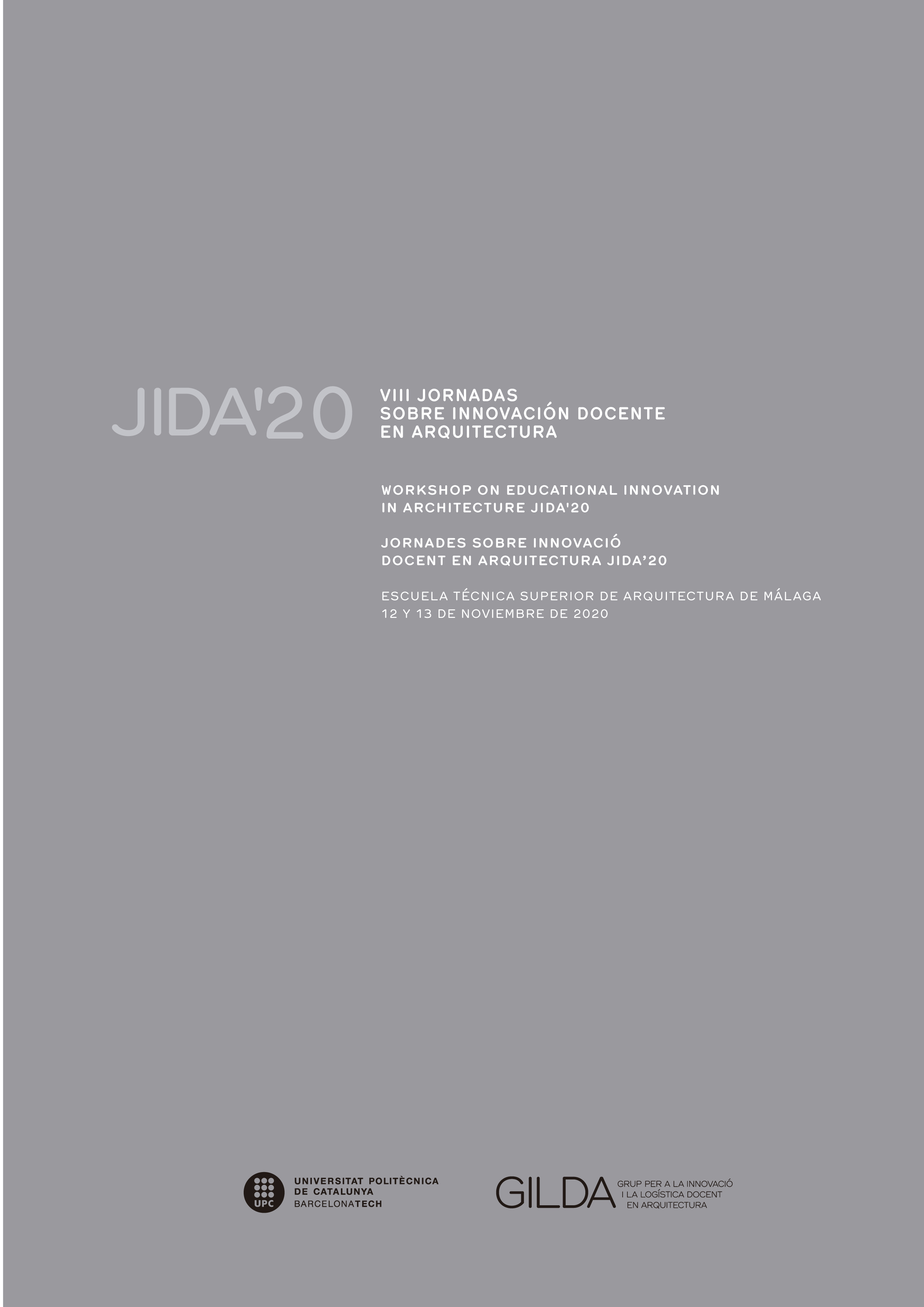Transversal strategies. Wheat and chaff
DOI:
https://doi.org/10.5821/jida.2020.9339Abstract
The main role of architecture, and especially urban planning, is to resolve problems. The experience we are presenting focuses on learning to prioritise these problems. Separating the wheat from the chaff. During a course, an experience that sought learning through process was put into practice. A vertical workshop served for joint reflections, through six subjects, around the Urban Development Strategy (EDUSI) of a specific municipality. This tool, present in more than 200 cities, serves to define the main urban and architectural actions. Little by little other disciplines have monopolized the decision-making of these plans, relegating architects to the execution of decisions already made. Through an active methodology, it was possible to develop a transversal strategy that expanded the boundaries of the discipline and put on the table the importance of architecture and urbanism as a basis for urban police.
References
Algorri GarcÃa, E. y Gómez Muñoz, G. (2019). “DeontologÃa y arquitectura. Manual para un ejercicio profesional dignoâ€. En Ed. Fundación Arquia https://fundacion.arquia.com/ediciones/publicaciones/colecciones/p/Colecciones/DetallePublicacion/169 [Consulta: 9 de septiembre de 2020]
Carcelén, R. y GarcÃa, F. (2019) “Learn 2 teach, teach 2 learn. Aprendizaje-servicio e intercambio de roles en arquitectura†en JIDA 19 https://revistes.upc.edu/index.php/JIDA/article/view/8305 [Consulta: 10 de agosto de 2020]
Córdoba, R. y Gómez, J.R. (2019) “Los talleres internacionales como sinergias generadoras de pensamiento complejo†en JIDA 19 https://revistes.upc.edu/index.php/JIDA/article/view/8264 [Consulta: 6 de septiembre de 2020]
Ezquiaga J.M., Alfaya L. (2011). Transformaciones Urbanas Sostenibles. Vigo. Ed. Universidad Internacional Menendez Pelayo.
Fernández Güell, J.M. (2007). 25 Años de planificación estratégica de ciudades. Revista Ciudad y Territorio: Estudios Territoriales.Nº 154. Pag. 621-637.
Fuentealba, J.s., Goycoolea Prado, R. y MartÃn Sevilla, J. (2018) “Aprendiendo a proyectar mediante el análisis de las decisiones de proyecto†en JIDA 18 https://revistes.upc.edu/index.php/JIDA/article/view/5471 [Consulta: 8 de agosto de 2020]
Giménez-Molina, M., RodrÃguez Pérez, M., Pérez González, M., Barbero-Barrera, M. (2018) “El aula invertida vertical. Una experiencia en la ETSAM-UPM†en JIDA 18 https://revistes.upc.edu/index.php/JIDA/article/view/5510 [Consulta: 11 de agosto de 2020]
Labarta Aizpún, C., y Bergera Serrano, J.I. (2014) “MetodologÃa e innovación docente del proyecto arquitectónico: la experiencia del Departamento de Arquitectura de la Universidad de Zaragoza†en JIDA 17 https://revistes.upc.edu/index.php/JIDA/article/view/5028 [Consulta:10 de septiembre de 2020]
Holl, S. (2009). Urbanisms. Working with doubt. Ed. Pricenton Architectural Press.
Molina, S. (2017) Hambre de arquitectura. Ed. Asimétricas
Pallasma, J. (2014). Los ojos de la piel. Barcelona. Ed. Gustavo Gili
Pallasma, J. (2010). Una arquitectura de la humildad. Barcelona. Ed. Fundación Caja de Arquitectos.
Pindado, F. (2008). La participación ciudadana es la vida de las ciudades. Ediciones del Serbal.
Secchi, B (2000). Prima lezione di urbanistica. Ed. Laterza. Bari, Italia.
Ulargui Agurruza, J., De Miguel GarcÃa, S. (2017) “Aula abierta†en JIDA 17 https://revistes.upc.edu/index.php/JIDA/article/view/5283 [Consulta:24 de agosto de 2020]






















